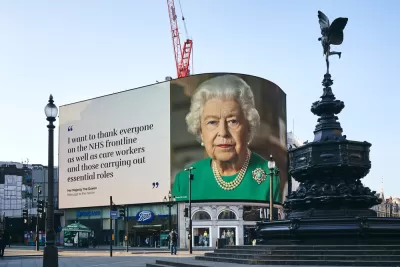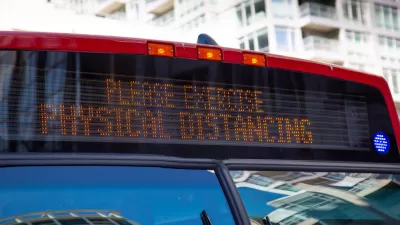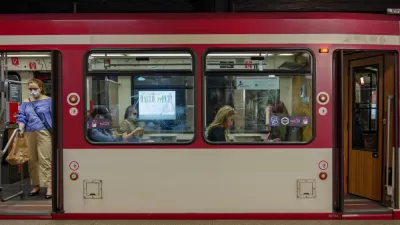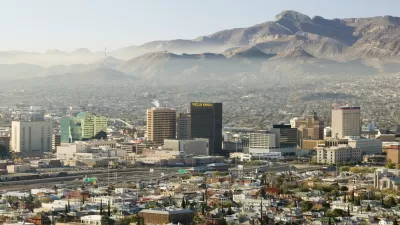The day after Election Day in America, the U.K. Parliament voted overwhelmingly to impose a 4-week lockdown in England to ensure that nation's prized healthcare system doesn't collapse due to treating mounting coronavirus infections.

The day before Americans cast their votes for the next president, the prime minister of the United Kingdom explained to the Members of Parliament (MPs) the importance of the vote they would cast on Wednesday.
"The UK faces a 'medical and moral disaster' unless tough action is taken now to stop the spread of coronavirus, Prime Minister Boris Johnson has said," reported the BBC on Nov. 2.
He told MPs there was "no alternative" but to introduce a national lockdown - which is due to begin on Thursday - to prevent the NHS from being overwhelmed.
The MPs approved the plan, which applies only to England (see below for coronavirus restrictions applicable to the other three U.K. nations), by 516 votes to 38, report Jon Stone and Andrew Woodcock for The Independent on Nov. 4. "The vote came after a stormy debate in which a succession of Conservative backbenchers voiced opposition to the new restrictions, which will force the closure of pubs, restaurants and non-essential shops and require people to stay home as much as possible."
What's rather remarkable to this observer from across the pond is that the political debate over imposing coronavirus mitigations and their negative impact on the economy and civil liberties is not that dissimilar from what we are seeing in the U.S., though it is happening at a more centralized level. Objection to the lockdown came from Prime Minister Johnson's own Conservative Party, also referred to as Tory MPs in the source article, including his predecessor, Theresa May.
"The government today making it illegal to conduct an act of public worship for the best of intentions, sets a precedent that could be misused for a government in the future with the worst of intentions," Ms May warned.
See this BBC compilation of the new lockdown rules for England that began Nov. 5 and end Dec. 2, and:
- Scotland's new five-tier system of coronavirus restrictions
- The existing temporary lockdown rules in place in Wales, Scotland and Northern Ireland
The opposition Labour Party was critical of Johnson, a coronavirus survivor, for acting too late and potentially ending the restrictions too early.
Labour leader Keir Starmer had harsh words for the prime minister, despite ordering his MPs to support the government in the vote. Rounding on the government’s exit strategy for the lockdown, Sir Keir said it would be “madness” for England to leave lockdown on 2 December if coronavirus rates are still rising.
“We have got to look the public in the eye,” Sir Keir told the prime minister at PMQs ahead of the debate. “If the infection rate is still going up on 2 December, it is madness to come back to the tier system. We know the one thing the tier system can't cope with is an R rate above one.”
The U.S. sets coronavirus record, but voters more focused on the economy
Meanwhile, on this side of the pond on Election Day, "exit polls showed that voters were more concerned about the state of the economy than public health," notes The Washington Post's "coronavirus updates" for Nov. 4, a day which marked the first time any nation has logged over 100,000 coronavirus infections in a 24-hour period.
The record, 104,004 cases, was reached a day after the deeply divided nation went to the polls to choose between President Trump and Democratic nominee Joe Biden, an election widely seen as a choice between fully reopening the economy and aggressively quelling the outbreak.
According to data collected by Edison Research, a consortium of television networks, "about 4 in 10 voters said they would prioritize the economy over efforts to limit the spread of the coronavirus," report Lenny Bernstein and Joel Achenbach in the Post article referenced in the update.
Around one-third of voters said they were primarily motivated by the economy...
About 2 in 10 voters said the pandemic that has left more than 232,000 Americans dead and upended life around the globe was the most important issue on their minds as they selected a president and other officials to lead the United States out of its more than nine-month public health crisis.
About the same number cited racial inequality.
Why the U.S. should be concerned with the European coronavirus resurgence
As bad as the coronavirus outbreak is in the U.S., particularly in the Midwest and Mountain States, it's worse in Europe. Average daily infections in the U.S. are 27 per 100,000 people and 36 per 100k in Europe on Nov. 5 according to The Washington Post
Public health experts have warned that the U.S. trajectory is on the epidemic curve as Europe; we're just behind them chronologically in the way that the New York City outbreak in late March followed the crisis in Northern Italy in early March.
“We’re about maybe three weeks behind Europe, maybe a month at the most, so we’re on the trajectory to look a lot like Europe as we enter the month of November,” Dr. Scott Gottlieb, a former FDA commissioner, told CNBC’s “Squawk Box” [Oct. 28]. “So I think things are going to get worse.”
Related in Planetizen:
- 'We are Entering the Steep Slope of the Epidemic Curve', Nov. 1, 2020
- Learning from Down Under, July 15, 2020
- Suppression or Mitigation? The Language of Coronavirus Containment [more on U.K.'s first 'virtual lockdown'], March 31, 2020
- Britain Shuts Down and India Locks Down to Contain COVID-19, March 26, 2020
-
A Nation of 60 Million on Lockdown, March 11, 2020
FULL STORY: England to go into lockdown from midnight tonight after MPs approve new restrictions

Alabama: Trump Terminates Settlements for Black Communities Harmed By Raw Sewage
Trump deemed the landmark civil rights agreement “illegal DEI and environmental justice policy.”

Study: Maui’s Plan to Convert Vacation Rentals to Long-Term Housing Could Cause Nearly $1 Billion Economic Loss
The plan would reduce visitor accommodation by 25% resulting in 1,900 jobs lost.

Planetizen Federal Action Tracker
A weekly monitor of how Trump’s orders and actions are impacting planners and planning in America.

Waymo Gets Permission to Map SF’s Market Street
If allowed to operate on the traffic-restricted street, Waymo’s autonomous taxis would have a leg up over ride-hailing competitors — and counter the city’s efforts to grow bike and pedestrian on the thoroughfare.

Parklet Symposium Highlights the Success of Shared Spaces
Parklets got a boost during the Covid-19 pandemic, when the concept was translated to outdoor dining programs that offered restaurants a lifeline during the shutdown.

Federal Homelessness Agency Places Entire Staff on Leave
The U.S. Interagency Council on Homelessness is the only federal agency dedicated to preventing and ending homelessness.
Urban Design for Planners 1: Software Tools
This six-course series explores essential urban design concepts using open source software and equips planners with the tools they need to participate fully in the urban design process.
Planning for Universal Design
Learn the tools for implementing Universal Design in planning regulations.
Caltrans
Smith Gee Studio
Institute for Housing and Urban Development Studies (IHS)
City of Grandview
Harvard GSD Executive Education
Toledo-Lucas County Plan Commissions
Salt Lake City
NYU Wagner Graduate School of Public Service





























